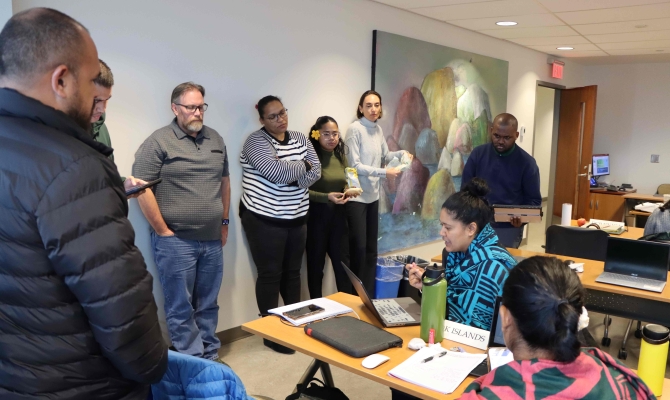
19 April 2024, Ottawa Canada - Three days from the opening of the fourth session of the Intergovernmental Negotiating Committee to develop an international legally binding instrument on plastic pollution, including in the marine environment (INC-4), the grim reality of plastic pollution continues to inflict pain on the most vulnerable communities around the world.
Many of those communities are in the Pacific region where despite its measly contribution of 1.3 percent to global plastic pollution, Pacific people are disproportionately impacted, threatening livelihoods, health and economies.
“I remember growing up in Nauru where it was so green, it was so beautiful. It was refreshing every morning because you wake up and you look out to the beautiful environment but these days it is so sad because this pristine environment is ruined by plastics,” said Mr Jeson Peo of Nauru.
“There are plastics everywhere. I cannot imagine what it would be like in the future. We cannot ignore the impact of these plastics on our environment, our oceans and our survival.”
Nauru is not alone. The presence and the threat of plastics is widespread. For all Pacific countries, plastics are imported, and where they are not, plastics are washed onto the shores from elsewhere.
“I am sick and tired of collecting plastic trash that wash off the beach of Mahu on the island of Tubuai when I walk the dogs twice a day,” said Ms Tekau Frere of French Polynesia. “I am also concerned that if we continue on this trajectory, we are essentially condoning insidious intoxication of current and future generations of humans, as well as other species, including marine species. This is morally unacceptable.”
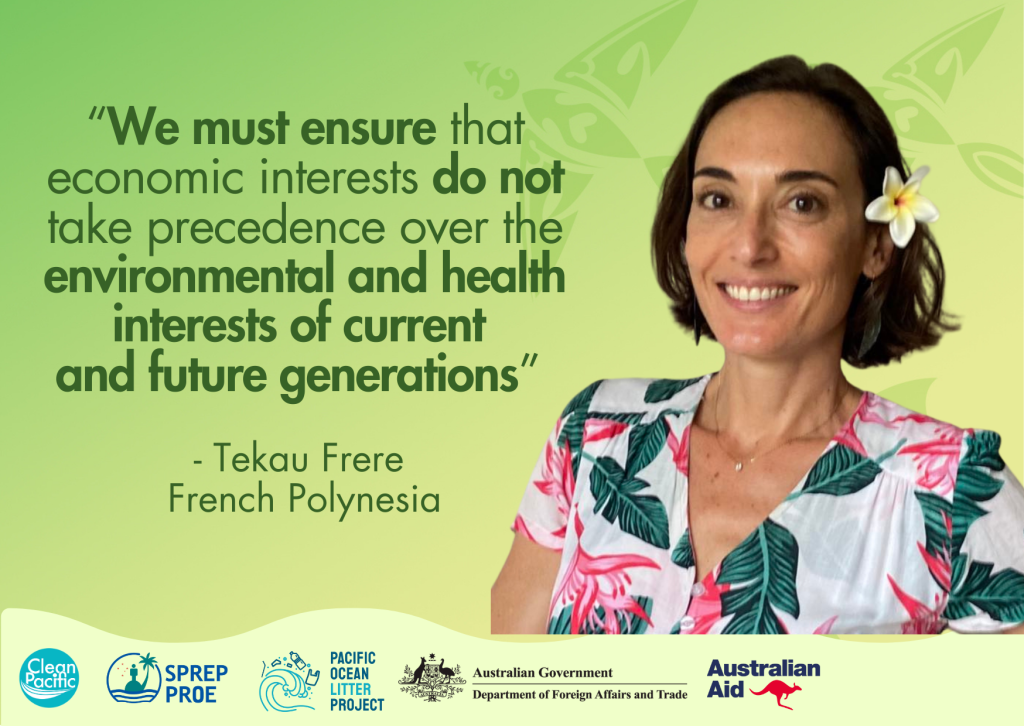
This “morally unacceptable” state of play is predicted to worsen over time – if we don’t act now.
As the world prepares for INC-4, the Lawrence Berkeley National Laboratory in Berkeley, California has just released a paper showing that the greenhouse gas emissions of the plastics industry are equivalent to those of about 600 coal-fired power plants and are four times higher than those of the airline sector. The paper finds that if plastic production remains at its current level, it could burn through roughly one-fifth the planet's remaining carbon budget, pushing the Earth closer to planetary heating that exceeds 1.5°C.
Plastic pollution adds salt to injury for a region already badly affected by biodiversity loss and worsening climate change. The three-strand chord of biodiversity loss, climate change and plastic pollution is often referred to as the triple planetary crisis. Pacific leaders have already issued a communiqué declaring that the Pacific is facing a climate emergency that “threatens the livelihoods, security and wellbeing of its people and ecosystems,” as evidenced by “the latest science and the daily lived realities in Pacific communities.”
In Ottawa, the capital of Canada, the sentiments are shared across the board by delegations from Pacific Small Island Developing States (PSIDS) and other members of the Alliance of Small Island States (AOSIS) who have been gathering at the University of Ottawa for the past two days to finalise their positions for INC-4.
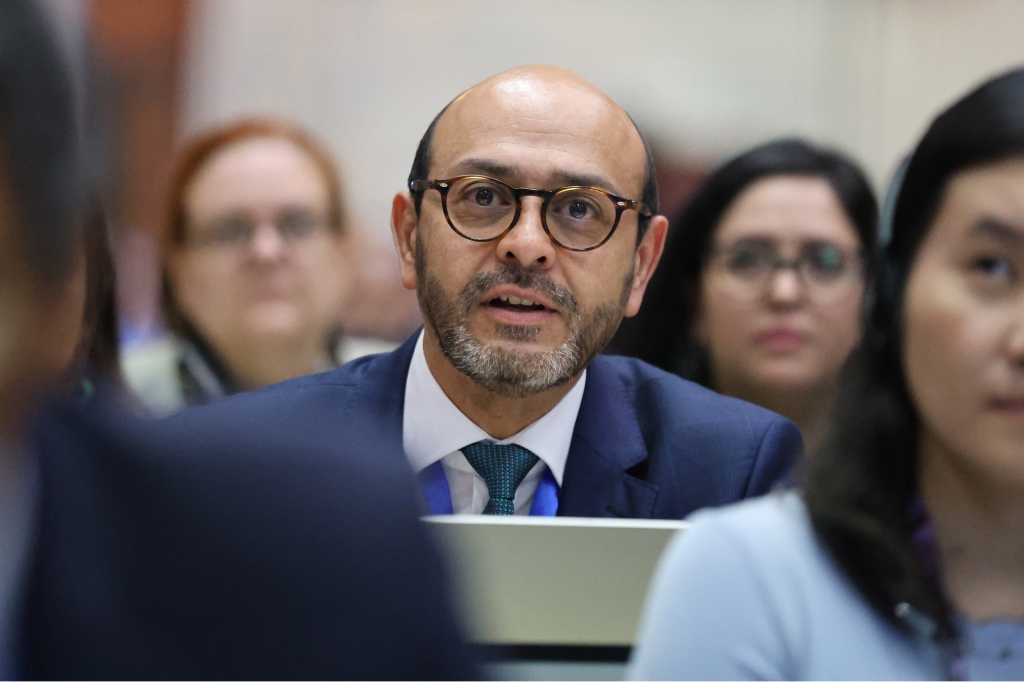
At the Shaw Centre next week, delegates will firstly hope to get a handle on where the proposed treaty progress is at and most importantly how they can get one ready by the end of the year, a target the world had set for INC-5 in Korea.
Delegates know the clock is ticking and there’s a lot of work that needs to happen if an ambitious treaty that covers the full lifecycle of plastic pollution, applicable to all Small Island Developing States, is to be achieved. Pacific delegations who are braving the cold and unpredictable temperatures of Ottawa are also well aware there are many challenges that could prove detrimental to progress.
“There are many challenges in this INC process. We have collectively created a worship for the ‘newest’, the ‘latest’, the ‘biggest’. In doing so, we have enabled a global culture of discard, which has resulted in the current crisis we are battling,” said Ms Frere, who has been part of the INC process since INC-1 in Uruguay. “We essentially have to shake up development models that are well established. So, as we engage in this process, we must ensure that economic interests do not take precedence over the environmental and health interests of current and future generations.”
Ms Tekura Moeka’a of the Cook Islands reminds that Pacific countries provide the world’s “moral compass” when it comes to addressing environmental challenges, especially the fact that Pacific communities are at the forefront of the impacts of a crisis they did not create.
“Our voice must be heard at this forum, we have to address the plastic pollution in our environment, the plastic pollution in our ocean, we have to be able to make a positive change,” she said.
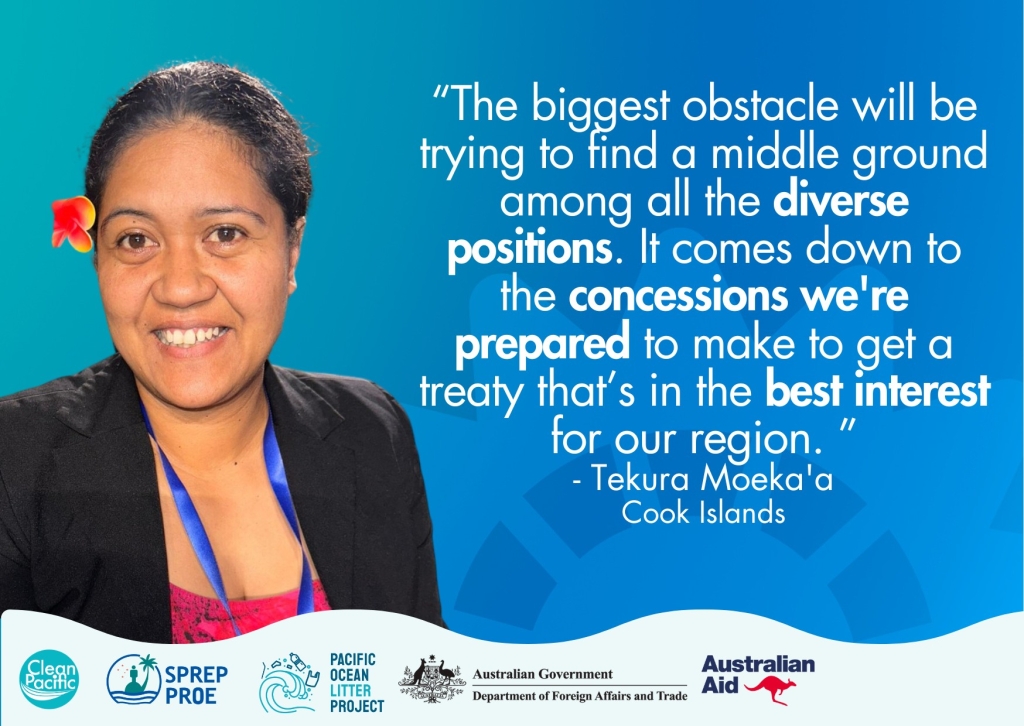
Most Pacific countries have small populations and land masses. On the global stage, their individual voices in their effort to make this positive change can sometimes be lost in the chaos of negotiations. This is why the work done through PSIDS and AOSIS to coordinate and strengthen national and collective positions, ahead of the INC itself, is critical.
“It is essential to amplify and unify the Pacific voice in the ongoing INC efforts to combat plastic pollution. For Palau and other Pacific nations, collectively recognised as the Big Ocean States, international collaboration and the exchange of information are essential,” said Ms Ianthe Douglas of Palau.
“By solidifying our joint strategy, we can significantly enhance our ability to address and mitigate the effects of plastic pollution. This united front is crucial in conveying a clear and powerful message to the world about our unwavering commitment to preserving not only our oceans but also the broader environment.”
Ms Frere agrees, and added: “In our region, we have a robust regional architecture. To adequately tackle plastic pollution, for the benefit of all, we must capitalise on these tools to support our negotiators. We now have a few months to finalise this treaty.”
For Mr Jeson Peo of Nauru, who is new to the INC process with INC-4 being his first taste of the global plastics work, he said everyone has a role to play, from government officials, civil society groups and private sector.
The young Nauruan also called for more involvement from the youth.
“I feel we need to educate and raise awareness about tackling pollution, especially amongst young people. They are the ones who will have to pay the price for what is happening now in the future,” he said.
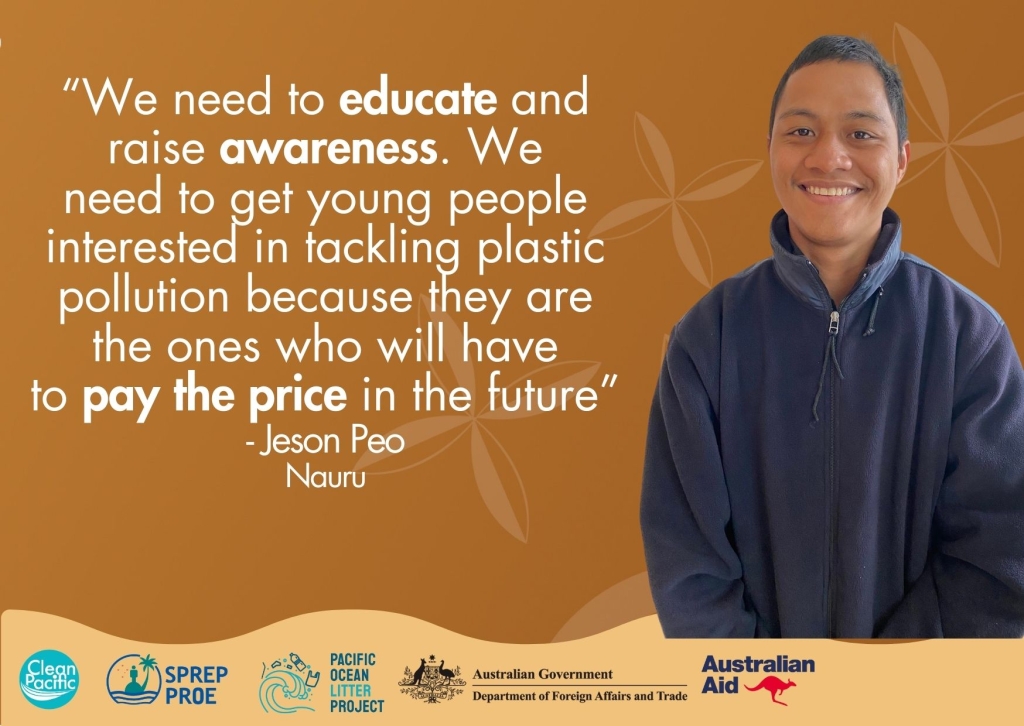
During the past several months, negotiations have focused on crafting a draft of the future treaty text. By the end of next week when INC-4 wraps up, delegates and negotiators will hope to have a mandate to forward a text ready for the final scheduled round of negotiations in Korea (INC-5), at the end of the year.
The fourth Intergovernmental Negotiating Committee to develop an international legally binding instrument on plastic pollution, including in the marine environment is taking place in Ottawa, Canada, from 23-29 April 2024.
The Pacific Islands are represented by the Cook Islands, Federated States of Micronesia, Fiji, Kiribati, Marshall Islands, Nauru, Niue, Palau, Papua New Guinea, Samoa, Solomon Islands, Tonga, Tuvalu and Vanuatu through the support of the Government of Australia and the United Nations.
They are supported by the Secretariat of the Pacific Regional Environment Programme (SPREP), working with partners the Pacific Islands Forum Secretariat (PIFS), Office of the Pacific Ocean Commissioner (OPOC), The Pacific Community (SPC), Forum Fisheries Agency (FFA), Environmental Investigation Agency (EIA), Centre for International Environmental Law (CIEL), University of Wollongong, WWF and Massey University.
For more information, visit: https://www.unep.org/inc-plastic-pollution/session-4